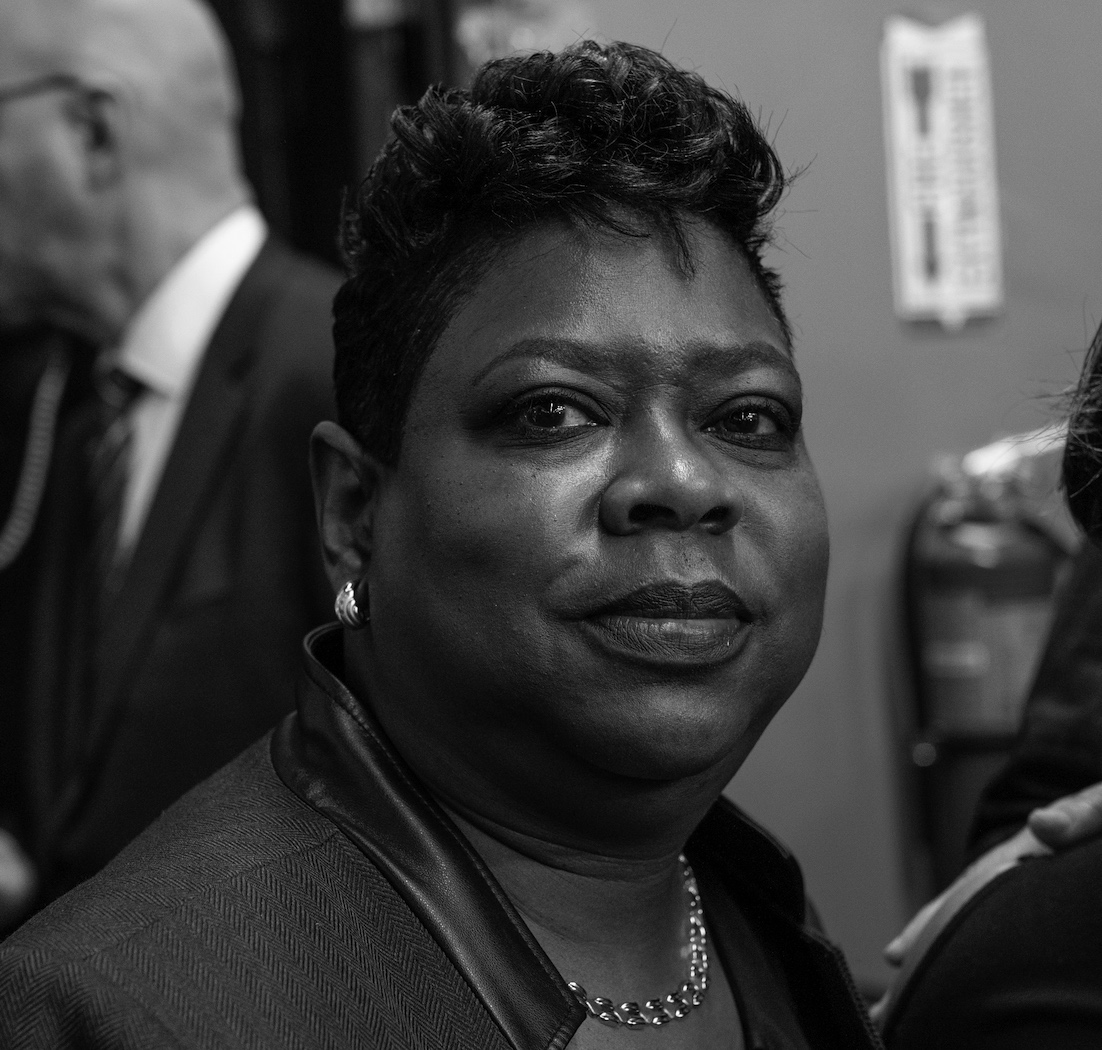New York City
The boroughs’ DAs each do justice differently
Comparing NYC’s top prosecutors.

Eric Gonzalez Brooklyn DA's Office
Nobody is above the law – but the law might get applied differently, depending on where you live. Each of New York City’s five district attorneys are elected officials, representing boroughs with different crime rates and cultures, and answerable to different voters and stakeholders.
There are still major points of agreement among the city’s five Democratic prosecutors who, along with their counterparts in Westchester and Nassau counties, wrote a joint New York Times op-ed earlier this year calling for a complete elimination of cash bail while allowing judges more discretion in jailing defendants awaiting trial. But the offices differ on how they handle other hot-button legal issues. Here’s how they stack up – with the caveat that, with hundreds of lawyers working under them, district attorneys don’t always live up to their promises.
Bronx District Attorney Darcel Clark

Democrat, in office since 2016
FY ’21 budget and headcount: $89 million, 1,064 employees
Major crimes: 19,422 recorded in 2018, or 13.2 per 1,000 residents
Criminal summonses: 23,074 recorded in 2018, or 15.7 per 1,000 residents
Marijuana prosecution: In February 2019, Clark said she would start declining prosecutions of marijuana possession cases when a defendant faces no other charges.
ICE in courthouses: Clark publicly supported the Protect Our Courts Act, a state legislative bill to block U.S. Immigration and Customs Enforcement agents from making arrests in courthouses.
Police chokeholds: Clark said she would assess the New York City Council’s bill “on a case-by-case basis,” and said she would recognize the difference between “incidental contact” with a defendant’s diaphragm and contact that might be worthy of a criminal charge.
Sex work: Clark has directed her office to presumptively decline to prosecute arrest for loitering for prostitution. Her office often allows sex workers to have their arrest record expunged if they complete mandated counseling and are not arrested again within six months.
Conviction review: The Bronx traditionally had one of the country’s highest exoneration rates, and Clark created a Conviction Integrity Unit after taking office, planning to mirror the unit in Brooklyn.
Brooklyn District Attorney Eric Gonzalez
Democrat, in office since 2016
FY ’21 budget and headcount: $120 million, 1,094 employees
Major crimes: 27,999 recorded in 2018, or 10.6 per 1,000 residents
Criminal summonses: 22,918 recorded in 2018, or 8.7 per 1,000 residents
Marijuana prosecution: Gonzalez’s office “no longer prosecutes most possession cases.” He erased dozens of past convictions and vacated at least 1,400 outstanding warrants stemming from marijuana possession cases.
ICE in courthouses: He publicly supported the Protect Our Courts Act and was a co-plaintiff in a lawsuit with the state attorney general’s office that blocked U.S. Immigration and Customs Enforcement agents from making arrests in New York courthouses.
Police chokeholds: Gonzalez publicly supported the New York City Council bill criminalizing police chokeholds. Upon its passage, he said he would make charging decisions based on the “facts and circumstances” as with any other case, but that he was “committed to holding police officers accountable whenever they break the law.”
Sex work: Gonzalez supported decriminalizing some prostitution-related crimes and offering alternatives to court intervention in the prosecution of sex workers. He supported arresting those who purchase sex.
Conviction review: Gonzalez’s office received a lot of attention for its Conviction Review Unit, which was created in 2014, thanks in part to its release of an extensive report detailing the 25 wrongful convictions it reversed. After public defenders said the unit had become ineffective, Gonzalez relaunched a larger Post-Conviction Justice Bureau, adding a parole and clemency unit and a unit dedicated to sealing criminal convictions.
Manhattan District Attorney Cyrus Vance Jr.

Democrat, in office since 2010
FY ’21 budget and headcount: $124 million, 1,185 employees
Major crimes: 26,828 recorded in 2018, or 16.1 per 1,000 residents
Criminal summonses: 25,370 recorded in 2018, or 15.2 per 1,000 residents
Marijuana prosecution: As of August 2018, Cyrus Vance Jr.’s office no longer prosecuted marijuana possession cases, except against certain sellers when there is a “demonstrated public safety threat.”
ICE in courthouses: Vance publicly supported the Protect Our Courts Act, a state legislative bill to block U.S. Immigration and Customs Enforcement agents from making arrests in courthouses.
Police chokeholds: Vance expressed concern that the New York City Council bill criminalizing police chokeholds would not hold up in court, because of “ambiguity” and “preemption by the state.”
Sex work: Vance supported repealing the “Walking While Trans” law. His office has a policy of using prosecutorial discretion and community groups to keep sex workers from having criminal records.
Conviction review: Vance created a Conviction Integrity Program upon taking office in 2010 – the first in the state. But critics said it has been much less productive than the similar unit in Brooklyn.
Queens District Attorney Melinda Katz

Democrat, in office since 2020
FY ’21 budget and headcount: $77 million, 723 employees
Major crimes: 18,935 recorded in 2018, or 8 per 1,000 residents
Criminal summonses: 14,692 recorded in 2018, or 6.2 per 1,000 residents
Marijuana prosecution: During her 2019 campaign, Katz promised to “refuse to prosecute low-level marijuana arrests.”
ICE in courthouses: Katz publicly supported the Protect Our Courts Act, a state legislative bill to block U.S. Immigration and Customs Enforcement agents from making arrests in courthouses.
Police chokeholds: Katz publicly supported the New York City Council bill criminalizing police chokeholds, but now supports a bill that would criminalize only “reckless” and not incidental chokeholds. In June, Katz was the first district attorney to prosecute a police officer for using a chokehold during an arrest.
Sex work: Katz created a new Human Trafficking Bureau that will prosecute people who pay for sex while connecting sex workers with “a path to freedom with services and programs.”
Conviction review: Katz created a Conviction Integrity Unit upon taking office in 2020 – a first for the borough. The office began reviewing 46 cases in its first four months.
Richmond County District Attorney Michael McMahon

Democrat, in office since 2016
FY ’21 budget and headcount: $18 million, 202 employees
Major crimes: 2,699 recorded in 2018, or 5.6 per 1,000 residents
Criminal summonses: 3,819 recorded in 2018, or 8 per 1,000 residents
Marijuana prosecution: Michael McMahon continues to prosecute marijuana possession charges to the extent the law allows, saying that he sees the drug as a “driving force” of crime.
ICE in courthouses: McMahon did not publicly support the Protect Our Courts Act, a state legislative bill to block U.S. Immigration and Customs Enforcement agents from making arrests in courthouses.
Police chokeholds: McMahon called the New York City Council bill criminalizing police chokeholds “reckless” and said it was not “necessary,” and he would not prosecute some cases where it might apply.
Sex work: McMahon said he rarely prosecutes sex workers, but does not support decriminalizing prostitution because it makes it harder to prosecute pimps and human traffickers.
Conviction review:The office announced plans in 2017 to create a Conviction Integrity Unit, but the office said recent budget cuts made its continued operation difficult.
– With reporting by Emma Bolton

NEXT STORY: Rochester police chief fired and NYC schools delayed again